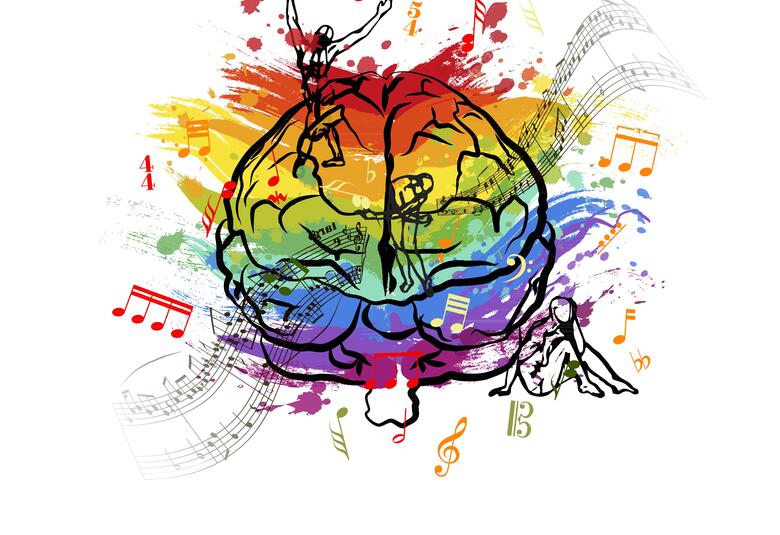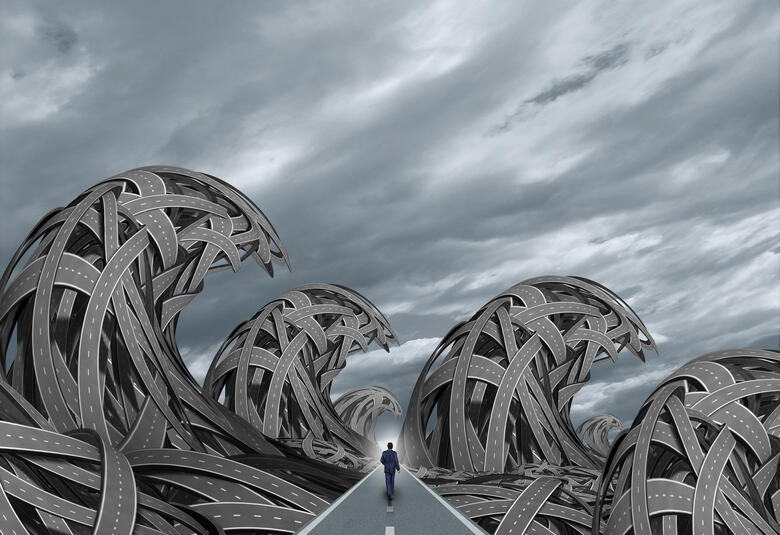Regulation of sleep involves many neurotransmitter systems and brain circuits. So it is likely that mechanisms underlying disrupted sleep overlap with those involved in depression and schizophrenia and may have a role in causation.
In a recent on-line survey of a large group of students, there was a clear relationship between those reporting subsyndromal psychiatric symptoms -- such as paranoia, depression and anxiety – and insomnia and severe nightmares.1 This is an important association since early adulthood is the time when much severe mental illness becomes apparent. Any intervention that can prevent its development would be hugely worthwhile.
Evidence points to disturbed sleep as being a cause of mental health problems and not just a consequence
Disturbed sleep and schizophrenia
The association between disrupted sleep and psychosis is compelling. Russell Foster, of the Sleep and Circadian Neuroscience Unit, Oxford, UK, and colleagues compared the sleep-wake activity and circadian rhythms of twenty outpatients with schizophrenia and 21 healthy controls over six weeks.2
Despite relatively well controlled symptoms, sleep was more fragmented in patients than in controls. On average patients with schizophrenia took 15 minutes longer to fall asleep and slept two hours more. They also showed less slow wave sleep.
Compared with healthy subjects, patients were less exposed to natural light, which may have impaired setting of the internal clock, and an abnormal circadian melatonin rhythm suggested lack of synchronisation with the external cycle of day and night. No patients and no controls were in paid employment, so lack of structured work did not account for the different sleep patterns.
Schizophrenia disrupts sleep and circadian rhythms. But it also seems that disturbances of sleep can precede severe mental illness and may even help cause it. The British National Psychiatric Morbidity Survey of more than two thousand participants looked for links between baseline assessments and the persistence or occurrence of paranoid thinking.3 Insomnia at baseline was associated with a three-fold higher rate of new paranoid thinking at eighteen months.
Possible intervention
Proof of causation depends on studies showing that interventions to reduce prodromal sleep disturbance also reduce rates of subsequent psychosis. And we are far from that. But preliminary evidence that disturbed sleep is treatable comes from a recent pilot study of cognitive behavioural therapy (CBT) in patients with persistent delusions and hallucinations.4
CBT has a good track record in treating insomnia. In this small randomised study with blinded assessment by assessors, 50 patients with distressing delusions or hallucinations and insomnia were randomised to standard care or standard care plus CBT designed to improve sleep.
CBT reduced sleep problems: after 12 weeks, 9 of 22 patients in the CBT group no longer had insomnia, compared with one of 25 controls. The investigators have now called for a phase III study of sufficient statistical power to assess the effect of sleep therapy on psychotic experiences.
A common aetiology?
In schizophrenia, the timing of sleep is irregular and sleep often of poor quality. Episodes may occur during the day as well at night and be too long or too short. With any kind of health problem, anxiety makes sleep difficult. But a working hypothesis proposed by Russell Foster and colleagues is that the abnormalities in neurotransmitter signalling and regulatory pathways that predispose to mental illness also cause disruption of sleep.
Genes linked to schizophrenia in humans affect sleep and circadian rhythms in mice. And an unpublished study from the Oxford group suggests that a breakdown in the sleep/wake cycle is evident in people at high risk of bipolar disorder who have not yet developed the disease.
Sleep may represent a new therapeutic target in the prevention of mental illness and its treatment
Poor sleep already a target in MDD
Insomnia predisposes to depression and is associated with more severe illness; and residual sleep problems seem to increase risk of relapse.5 Its treatment is therefore being widely investigated, not least in a randomised controlled trial in Australia which will assess the efficacy of an internet-delivered CBT programme to treat insomnia in men with depression. The major outcome variable is change in depression symptoms at week 12.
There is already evidence from a controlled study in Japan that adding CBT for insomnia is not only effective but also cost-effective (measured by quality-adjusted life years) in patients with residual insomnia and concomitant major depression.6 In a pilot study in adolescents with depression and sleep problems, augmenting conventional depression treatment by treating sleep issues with CBT improved both sleep and depression outcomes including faster time to recovery.7
According to the early 17th century poet Thomas Dekker, sleep is “the golden chain that ties health and our bodies together”. Disruption of sleep may also be a golden thread linking several forms of mental illness -- notably schizophrenia and the onset of major depression -- and indeed other brain problems such as Alzheimer’s and Parkinson’s Diseases. Insights into the potential role of disturbed sleep in altered amyloid deposition and in the prodrome to Parkinson’s will be covered in a separate post.
For a more detailed account of the links between sleep and schizophrenia, see http://institute.progress.im/en/content/sleep-and-schizophrenia-are-intimately-linked




